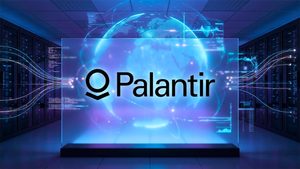Highlights:
- Cadence Tensilica Fusion G6 DSP and Xtensa LX7 processor, the Cadence digital full flow and GF’s 22FDX platform enable first-of-its-kind binaural hearing aid SoC prototype
- New SmartHeAP SoC prototype lets customers create hearing aids that process sound more optimally and reduce background noise
Cadence Design Systems, Inc. (Nasdaq: CDNS) today announced that it has successfully collaborated with a consortium that included GlobalFoundries (GF), Hoerzentrum Oldenburg gGmbH and Leibniz University Hannover to develop the industry’s first binaural hearing aid system-on-chip (SoC) prototype, which is programmable with high-programming languages and enables customers to create hearing aids that process critical sounds more optimally while simultaneously reducing background noise. The new SoC, called the Smart Hearing Aid Processor (SmartHeAP), is based on the Cadence® Tensilica® Fusion G6 DSP and Tensilica Xtensa® LX7 processor, the Cadence digital full flow and the GF 22FDX® platform. The SmartHeAP project is supported by the German Federal Ministry of Education and Research under grant 16ES0760.
The SmartHeAP SoC prototype provides hearing aid companies with all the components required to create and reprogram hearing devices that improve a wearer’s hearing experience. Some of the key benefits the SmartHeAP SoC prototype provides include:
- Binaural hearing technology: Hearing aids in the right and left ears communicate with one another, enabling a wearer to pick up sounds from the full auditory scene without destroying the binaural cues.
- Improved hearing loss compensation capabilities: Through advanced algorithms, the SoC automatically analyzes the incoming signal and provides adaptive sound amplification that is customized to the wearer’s unique hearing needs.
- High processing capacity with minimal power consumption: Provides the hearing aid wearer with optimal sound quality in real time while conserving power and extending hearing aid battery life.
- Cost Savings: The hearing aid software can be quickly upgraded without replacing the hardware, saving both the wearers and the hearing aid companies money.
- Faster time to market: Hearing aid companies of all sizes can effectively compete in the market due to the ease of use of high-level programming languages, which enable faster innovation cycles.
The Tensilica Fusion G6 DSP was a logical choice for the development of the SmartHeAP SoC because it’s an easy-to-program, multi-purpose DSP that provides low energy consumption, a small footprint, and exceptional out-of-the-box performance. The Tensilica Xtensa LX7 processor is tailored for control-intensive tasks and offers a small footprint, providing added performance, flexibility, and longevity to the design. The Cadence digital full flow enabled a fast path to design closure and better predictability while delivering optimal power, performance and area (PPA). Finally, the GF 22FDX platform provided up to 50% lower power at the same high-performance frequencies (vs. 28nm), enabled by the adaptive body bias (ABB) feature, which is critically important for ultra-low 0.5V VDD or below to reduce power consumption on battery-powered devices, such as hearing aids.
“By collaborating with GF, Hoerzentrum Oldenburg gGmbH and Leibniz University Hannover on the SmartHeAP SoC prototype, our research and technology advancements are improving the hearing experience,” said Rishi Chugh, vice president, product management in the IP Group at Cadence. “Each organization involved brought a unique perspective to the project, and delivering a successful prototype that can make a positive impact on the hearing experience is the ultimate reward. The Cadence digital full flow and Tensilica Fusion G6 DSP and Xtensa LX7 controller were foundational for this project, and the consortium is already seeing a high level of interest in the prototype from the hearing aid industry.”
The Tensilica Fusion G6 DSP and Xtensa LX7 processor, as well as the digital full flow, support Cadence’s broader Intelligent System Design™ Strategy, enabling SoC design excellence. To learn more about the Cadence Tensilica IP, please visit www.cadence.com/go/tensilicash, and to learn more about the Cadence digital full flow, visit www.cadence.com/go/digitalffsh. To learn about the GF 22FDX platform, go to gf.com/technology-platforms. For more information on the full SmartHeAP system, visit https://www.elektronikforschung.de/projekte/smartheap.
Consortium Quotes
“The collaboration between GF, Cadence, Hoerzentrum Oldenburg gGmbH and Leibniz University Hannover resulted in a successful hearing aid SoC that consumes significantly less power while providing hearing aid wearers with the first-of-its-kind binaural technology that transforms how they process a complete auditory scene. By harnessing the power of the Cadence Tensilica DSP and digital full flow combined with the energy efficiency of the 22FDX platform, we delivered compelling PPA results.”
- Ted Letavic, corporate fellow, GlobalFoundries
“Hoerzentrum Oldenburg gGmbH stands for a unique combination of interdisciplinary, demand-oriented hearing research, customer-oriented services and market-oriented product developments. It has successfully developed numerous innovative methods into medical products and brought them to market. Through our current collaboration with Cadence, GF and Leibniz University Hannover, we’ve succeeded in advancing relevant research for the improvement and customization of hearing aid technology and contributing to the development of advanced algorithms.”
- Dr. Kamil Adiloğlu, research engineer, Hoerzentrum Oldenburg gGmbH
“The Institute for Microelectronic Systems (IMS) at Leibniz University Hannover is focused on the design and implementation of digital and analog circuits and systems as well as in the development of tools for the automation of the design process. IMS has long-standing expertise in mapping powerful and compute-intensive algorithms to Cadence’s Tensilica architecture, using the full potential of its instruction set extensibility. By collaborating with Cadence, GF and Hoerzentrum Oldenburg gGmbH, we’re bringing the joy of hearing back to hearing aid wearers with this new SoC prototype.”
- Prof. Holger Blume, managing director, Institute for Microelectronic Systems, Leibniz University Hannover
About Cadence
Cadence is a pivotal leader in electronic systems design, building upon more than 30 years of computational software expertise. The company applies its underlying Intelligent System Design strategy to deliver software, hardware and IP that turn design concepts into reality. Cadence customers are the world’s most innovative companies, delivering extraordinary electronic products from chips to boards to complete systems for the most dynamic market applications, including hyperscale computing, 5G communications, automotive, mobile, aerospace, consumer, industrial and healthcare. For eight years in a row, Fortune magazine has named Cadence one of the 100 Best Companies to Work For. Learn more at cadence.com.
© 2023 Cadence Design Systems, Inc. All rights reserved worldwide. Cadence, the Cadence logo and the other Cadence marks found at www.cadence.com/go/trademarks are trademarks or registered trademarks of Cadence Design Systems, Inc. All other trademarks are the property of their respective owners.
Category: Featured
View source version on businesswire.com: https://www.businesswire.com/news/home/20230718800628/en/
Cadence announced a consortium collaboration with @GlobalFoundries, Hoerzentrum Oldenburg gGmbH and @UniHannover to develop the industry’s first binaural hearing aid system-on-chip (SoC) prototype.
Contacts
Cadence Newsroom
408-944-7039
newsroom@cadence.com





